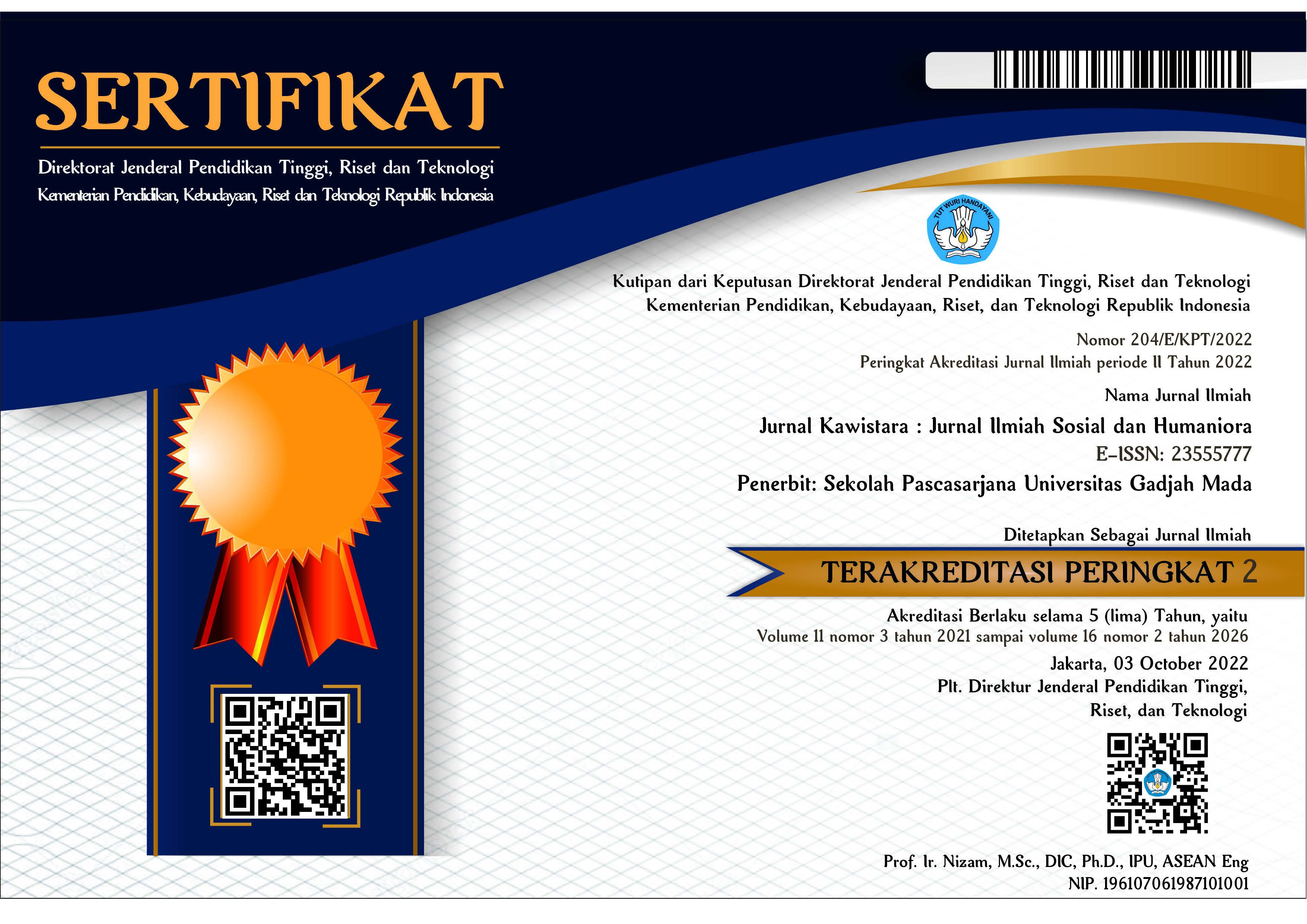PAKET WISATA EDUKASI SUBAK UPAYA MENJAGA KEBERLANJUTAN POTENSI PERTANIAN DAN PARIWISATA BERBASIS BUDAYA DI BALI
Ni Luh Ramaswati Purnawan(1*), I Ketut Sardiana(2)
(1) Udayana University
(2) Universitas Udayana
(*) Corresponding Author
Abstract
Tourism and agriculture are leading sectors of development in Bali Province. Before Bali’s economy relies heavily on tourism sector, agriculture was a major driver of economic growth. However, with so many challenges of land adjustment and use, and the increase tendency of agricultural land conversion into non-agricultural purpose, the growth of the agricultural sector gradually decreased. Declining of agriculture domain might cause a challenge for Bali because agriculture is not just an activity of land cultivation, but it has related more as spirit or the essential substances of Balinese cultural identity. One of the agricultural universal icons is the Subak system, which has named as world cultural heritage by UNESCO in 2012. Thus, to ensure the sustainability of the agricultural and tourism in Bali, the effort to combine both fields through development of Subak educational tourism becomes relevant. This idea is based on the perspectives that agricultural and tourism areas are interrelated systems. Tourism in Bali is counting on how Bali can preserve its natural and cultural attractions, this include the agrarian culture and lifestyle. The emergence of knowledge-based society, that encourage travellers to be actively involved and participate to fulfill their desire of learning and understanding others culture, has greatly contributed to development of this special interest tourism. Study indicated that Subak educational tourism can be applied toward sustainability as it incorporated the aspect of natural and socio-cultural conservation and could offer economic benefits for the well-being of the local community.
Keywords
Full Text:
PDFReferences
Badan Pusat Statistik Provinsi Bali. 2017. Provinsi Bali Dalam Angka-Bali Province In Figures 2017. BPS Provinsi Bali. Denpasar
_______. 2016. Luas Lahan per Kabupaten/Kota Menurut Penggunaannya di Provinsi Bali. BPS Provinsi Bali. Denpasar
ICOMOS, 2002. International Cultural Tourism Charter: Principles and Guidelines for Managing Tourism at Places of Cultural and Heritage Significance, Mexico
OECD. 2015. The Impact of Culture on Tourism. Diakses pada tanggal 19 Agustus 2017. < http://www.oecd.org/>
Provinsi Bali. 2015. Seri Analisis Pembangunan Wilayah Provinsi Bali 2015. Provinsi Bali
Phillip, S., Hunter, C., dan Blackstock, K., 2010. “A typology for defining agritourism”, Tourism Management, 31 (2010) 754-758,
Pine II, B.J. and Gilmore, J.H. 2011. The Experience Economy, Harvard Business Review Press, Boston
Richards, G. 2003. What is Cultural Tourism?. Diakses pada 19 April 2016. <http://www.oecd.org>
Ritchie, B.W., Carr, N., dan Cooper, C., 2003. Managing Educational Tourism. Aspect of Tourism. Channel View Publications, Clevedon.
Sardiana, IK., Purnawan, N.L.R. 2015. “Wisata Ekologi Berbasis Desa Adat di Tenganan Dauh Tukad” dalam Darma Putra, I N (Ed). 2015. Pariwisata Berbasis Masyarakat Model Bali. Program Studi Magister Kajian Pariwisata Universitas Udayana, Denpasar
UNESCO. 2012. Cultural Landscape of Bali Province: the Subak Sistem as a Manifestation of the Tri Hita Karana Philosophy Diakses pada tanggal 19 April 2017. <https://whc.unesco.org/en/list/1194>
UNWTO. 2015. UNWTO Drives Sustainable Tourism. Interview with United Nations World Tourism Organization (UNWTO) Secretary General, Taleb Rifai. Diakses 19 April 2017. <http://globalislandnews.com>
Windia, W., Pusposutardjo, S., Sutawan, N., Sudira, P dan Supadmo Ari, S., 2005. ‘Sistem Irigasi Subak Dengan Landasan Tri Hita Karana (THK) Sebagai teknologi Sepadan Dalam Pertanian Beririgasi’ dalam Jurnal SOCA Vol.5, No.3, November 2005. < http://ojs.unud.ac.id/>
Windia, W., Sumiyati, Sedana, G., 2015. ‘Aspek Ritual pada Sistem Irigasi Subak sebagai Warisan Budaya Dunia’, Jurnal Kajian Bali, Vol. 05., No.01., April 2015
Wirawan, A.A.B. 2011. ‘SWECAPURA : Dari Nama Keraton menjadi Nama Subak di Desa Gelgel, Abad ke-14 dan Abad ke-20 dalam Ebisawa, T (ed) The Subak Gede Swcapura and the Gelgel Kingdom in Bali, Tokyo, Jepang.
Article Metrics
Refbacks
- There are currently no refbacks.
Copyright (c) 2018 Jurnal Kawistara

This work is licensed under a Creative Commons Attribution-ShareAlike 4.0 International License.
Jurnal Kawistara is published by the Graduate School, Universitas Gadjah Mada.







